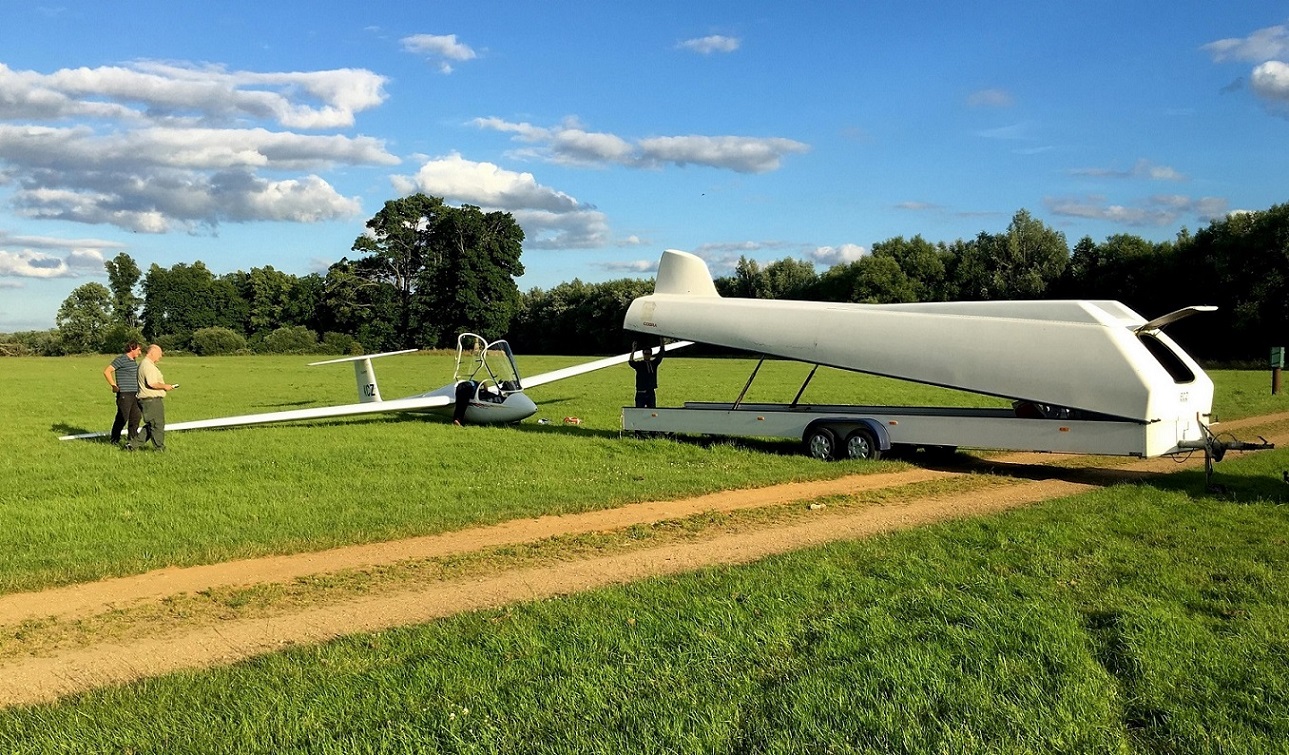Hambleden
Note: Needless to say this map only gives an approximate position.
Picture by James Roland
HAMBLEDEN: Glider landing-out site
Location: River bank pasture W of Hambleden marina
NOTES: This location has been chosen, apart from having a great picture, simply to illustrate that the gliding fraternity regularly need to land away from their base airfield. There can be a number of different reasons of course but generally most of these involve the pilots finding that they have lost the means to gain lift.
In this case, in July 2016, the pilot of the K.21 realised when south of his base at BOOKER (WYCOMBE AIR PARK), that he would not be able to get home, so wisely chose a nice large flat grass field in which to make a text book landing. Without any doubt, the skills needed to achieve this are regularly practised by glider pilots - every time they land! And, unlike their powered aeroplane compatriots, even when landing at a previously unknown location, they invariably arrive perfectly safely and without any damage to the aircraft.
This said, gliders are of course specifically designed to cope with such an eventuality. For powered aircraft the tail-wheel versions are mostly more suitable, whereas for the majority which have nose-wheels, it doesn't need much of an obstacle such as a rabbit hole, small ditch etc, to snag on - and turn the aircraft over onto its back. Also, gliders have very effective air brakes, which can be constantly adjusted to maintain an accurate approach - much better than the flaps found on most powered aircraft.
It is therefore, I suppose, no surprise to find that modern jet airliners also use air brakes, to adjust their speed and rate of descent.
We'd love to hear from you, so please scroll down to leave a comment!
Leave a comment ...
Copyright (c) UK Airfield Guide
















